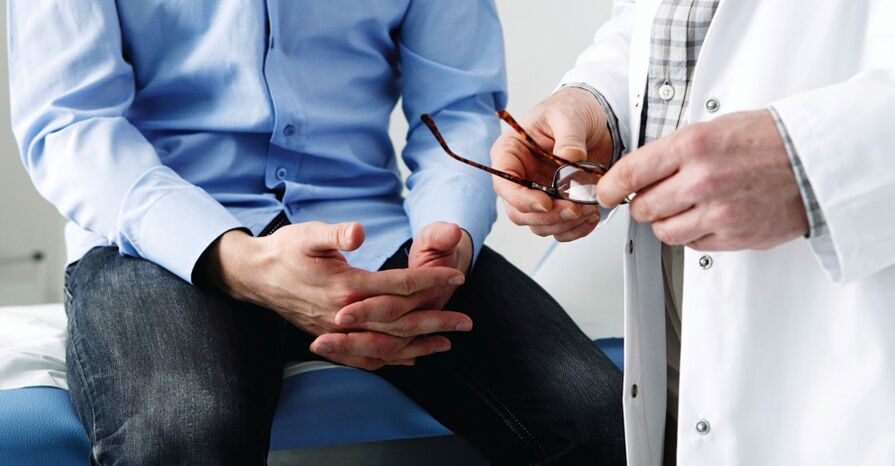A terrible dream of a man and one of the most unpleasant and delicate diseases - prostatitis. They do not like to talk about him and do not pay attention to it until a serious exacerbation begins. . And then - the fight against the consequences, in which all means are good, but little helps.
How to treat prostatitis so that it does not become chronic and why it is easy for it to get sick, but difficult to get rid of - in our article.
What is prostatitis
Prostatitis is inflammation of the prostate, an organ that only men have. Located in the pelvic area, under the bladder. The urethra runs through the prostate.
Functions of the prostate:
- produces a secret gland (male sex hormone) that provides sperm mobility and is part of the sperm;
- blocks the urethra during erection.
How to treat prostatitis depends on whether it is acute or chronic, but let's first look at the symptoms.

How do you understand that you are sick
Feelings in acute prostatitis:
- high fever, chills;
- Pain when urinating, drop by drop, or dragging to the toilet even though the bladder is empty;
- pain in the perineum - can be given under the testicles, in the rectum, in the genital or sacrum;
- Fainting orgasm, there is no previous feeling span during intercourse;
- Combustion;
- general malaise - muscles, bones, joints ache - it can be difficult for the patient to explain what exactly;
- Irritability;
- weakness.
Chronic prostatitis is acute and untreated. The pain subsides completely or is present all the time, but with less intensity so that the patient does not pay attention to it. Exacerbations occur periodically in chronic prostatitis. Symptoms are the same as acute.
One form of chronic prostatitis is chronic pelvic pain syndrome. The:
- persistent pelvic pain that lasts for several months,
- frequent use of the toilet,
- poor psycho-emotional state.
At the same time, bacteria may not be in the secret of the prostate, and the pain is related to other reasons.
The symptoms are used as a guide for the doctor to determine the type and treatment of prostatitis.
How to treat prostatitis
Due to a sedentary lifestyle and sedentary work, the blood stagnates. The cause can be infections, lack of sexual intercourse, hypothermia.
When the first symptoms appear - pain and temperature, you do not have to endure and wait until it all goes away on its own. Do not hesitate to consult a doctor.
With acute or exacerbated chronic prostatitis, you need to take a smear and culture from the genital tract to determine what type of disease (bacterial or non-bacterial) the prostate gland is examined with ultrasound.
If in the analyzes: gonococci, chlamydia, trichomanade, then treat prostatitis with antibacterial drugs and take it together with a partner.
If microorganisms such as staphylococci, streptococci, gardenella, mycoplasma, ureaplasma in this case do not take antibacterial drugs. These microorganisms always live in a person, they are activated with hypothermia, blood stasis and decreased immunity. How to treat prostatitis in this caseImprove immunity and eliminate blood stagnation in the pelvic organs, regularly undergo preventive physiotherapy courses. Special physical devices are currently being developed and successfully used for male clearance procedures.
What the specialist prescribes:
- Antibiotics;
- anti-inflammatory drugs;
- Drugs that make urination easier;
- special exercises to improve blood circulation;
- Prostate massage;
- Physical therapy;
- Vitamins.
The disease doesn't go away quickly. The acute inflammatory phase is 5-7 days. After that, the symptoms become less pronounced. The patient thinks everything is fine and stops treatment. This is the main mistake. Untreated acute prostatitis becomes chronic, and this is a life of constant discomfort with urination, intercourse, and sitting.
This is how you avoid illness

Move more.In your free time you walk, run, swim more. But take care not to overcool. Prostatitis is often associated with congestion of blood, so active leisure time is beneficial, especially if you are sedentary.
Take care of your immunity.Fill in the lack of trace elements and vitamins in the body. Pay attention to your diet, do not get carried away by salty, smoked and spicy foods.
Monitor your health and follow our recommendations so that the disease does not bother you.
































